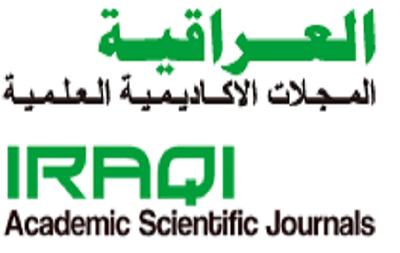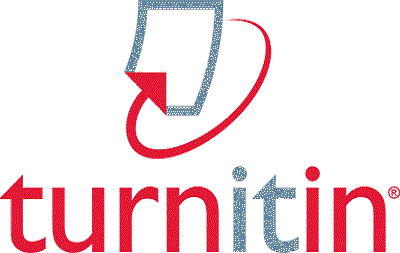Guide for Reviewer
General Notes:
• The Journal of Studies and Researches of Sport Education (JSRSE) follows (Double Blind Review) policy.
• All Reviewing steps are electronically based on the Open Journal Systems (OJS).For more guidance on reviewing instruction using OJS, please review the following link Reviewing Instructions.
• The maximum period of Reviewing is (10) days from the date of receiving the manuscript. In case of reviewer’s apologies, he must notify the journal as soon as possible during the first week; otherwise, the he will be changed.
• The Reviewing process is based on the manuscript submitted by the editorial board in the form of (Word 2010) onwards.
Before you accept or decline an invitation to review, consider the following questions:
• Does the article match your area of expertise? Only accept if you feel you can provide a high-quality review.
• Do you have a potential conflict of interest? Disclose this to the editor when you respond.
• Do you have time? Reviewing can be a lot of work – before you commit, make sure you can meet the deadline.
How to peer review for (JSRSE)
The reviewer report should comprehensively critique the submission and consist of much more than a few brief sentences. (JSRSE) does not require a specific structure for reports, however, a suggested format is:
• Summary.
• Major issues.
• Minor issues.
We encourage reviewers to help authors improve their manuscript. The report should give constructive analysis to authors, particularly where revisions are recommended. Where reviewers do not wish authors to see certain comments, these can be added to the confidential comments to the editor in chief. While expectations vary by discipline, some core aspects that should be critiqued by reviewers may include:
• Are the research questions valid?
• Is the research title expressive of the research content, and within the conditions?
• Were the keywords added after the research summary in an adequate manner and expressive of the research?
• Was the (IMRAD) method followed in writing the research?
• Does the research introduction include previous studies (no less than 5) that are adequate and close to the research topic?
• Is the sample size sufficient?
• Is there necessary ethical approval and/or consent and was the research ethical?
• Are the methods and study design appropriate for answering the research question?
• Is the reporting of the methods, including any equipment and materials, sufficiently detailed that the research might be reproduced?
• Are any statistical tests used appropriate and correctly reported?
• Are the figures and tables clear and do they accurately represent the results?
• Has previous research by the authors and others been discussed and have those results been compared to the current results?
• Are there any inappropriate citations, for example, not supporting the claim being made or too many citations to the authors'''' own articles?
• Do the results support the conclusions?
• Are limitations of the research acknowledged?
• Is the abstract an accurate summary of the research and results, without spin?
• Is the language clear and understandable?
• Is the citation of sources clear, appropriate, current, and in accordance with APA style?
• Should some paragraphs of the research be amended, clarified, excluded, or unimportant?
• Is the number of research pages appropriate (10-20) pages, and is it compatible with the content?
• To help authors receive timely reviews, reviewer reports should be submitted via the manuscript tracking system on or before the agreed deadline. Reviewers should contact (JSRSE) if they are unable to meet the deadline so an alternative date can be arranged.
We encourage reviewers to focus their reports on objectively critiquing the scientific aspects of the submission, including the soundness of the methodology and whether the conclusions can be supported by the results. Comments may also be given on novelty and the potential impact of the work. At the end of their review, we ask reviewers to recommend one of the following actions:
• Accept Submission: it is ready to go to Copyediting as is.
• Revisions Required: it requires minor changes that can be reviewed and accepted by the editor.
• Resubmit for Review: it requires major changes and another round of peer review.
• Resubmit Elsewhere: it doesn’t seem like a good fit for the focus and scope of this journal.
• Decline Submission: it has too many weaknesses to ever be accepted.
• See Comments: if none of the above recommendations make sense, you can leave a comment for the editor detailing your concerns.
• Unable to Review.
Confidentiality
Manuscripts under peer review should be strictly confidential. Reviewers must not share manuscripts or discuss their content with anyone outside the peer review process.
Reviewers may, on request, consult with colleagues from their research group trusting that the confidentiality of the manuscript is maintained. Reviewers should first contact (JSRSE) or the Editor in Chief and note the name of the colleague(s) in the ‘Comments to the editor’ section of their report.
Conflicts of interest
Reviewers should decline to review a submission when they:
• Have a financial interest in the subject of the work.
• Have previously discussed the manuscript with the authors.
• Feel unable to be objective.
Applications to review
We appreciate applications to join our community of peer reviewers. Our Editorial Board select reviewers on a manuscript-by-manuscript basis. In each case they invite the most appropriate scientists from their own specialty and/or publication list. To ensure we have your up-to-date contact details, interested reviewers should register for a user account and request the Reviewer role and Fill out the form information.
 IASJ
IASJ CC-BY-4.0
CC-BY-4.0 turnitin
turnitin ISSN
ISSN DOAJ
DOAJ Crossref
Crossref GoogleScholar
GoogleScholar Orcid
Orcid